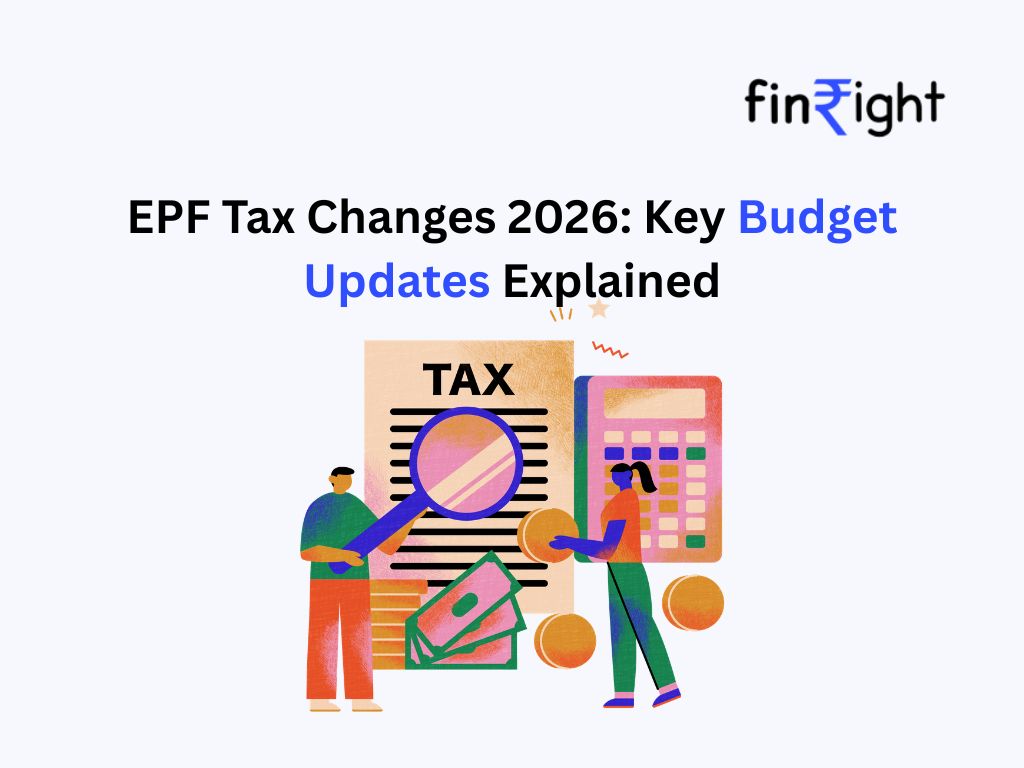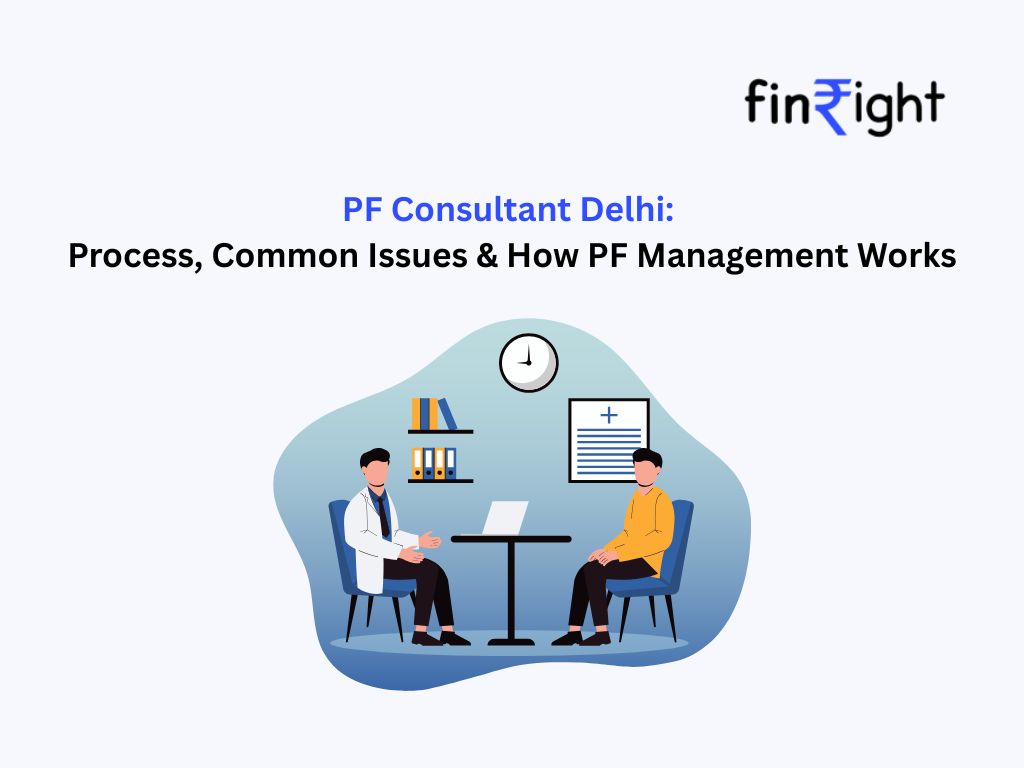Understand how EPF withdrawals are taxed and how to avoid surprises at tax time.
Why This Matters
Many salaried employees assume their PF withdrawals are always tax-free. That’s not true.
Depending on how long you’ve worked, why you’re withdrawing, and how much you’re withdrawing, your PF payout may be fully taxable, partially taxable, or completely exempt.
Let’s break it down.
✅ When PF Withdrawals Are Tax-Free
| Situation | Tax Treatment |
| You’ve completed 5+ years of PF-contributing service | ✅ Entire withdrawal is tax-free |
| You’re withdrawing partially for approved reasons (e.g. marriage, medical needs, home purchase) | ✅ Not taxable, even before 5 years |
| Your total withdrawal is less than ₹50,000 | ✅ No TDS, but tax may still apply (see below) |
⚠️ When Your PF Withdrawal Is Taxable
If you withdraw your full PF amount before completing 5 years of service, taxes apply differently to each component of your PF balance.
| Component | Is It Taxable? | Tax Head |
| Employee Contribution | 🚫 Not directly taxable, but… if you claimed Section 80C benefits, the tax deduction gets reversed and added to your income. | |
| Interest on Employee Contribution | ✅ Taxable | Income from Other Sources |
| Employer Contribution | ✅ Taxable | Salary Income |
| Interest on Employer Contribution | ✅ Taxable | Salary Income |
You’ll need to include these amounts in your income tax return (ITR) and pay the applicable tax based on your slab.
🛑 No TDS ≠ No Tax
Just because TDS (Tax Deducted at Source) is not deducted doesn’t mean you don’t owe tax.
- If your withdrawal is under ₹50,000, TDS is not deducted — but tax still applies if you haven’t completed 5 years.
- If you withdrew due to ill health, company closure, or retrenchment, TDS might be waived — but you’re still responsible for reporting and paying applicable tax.
📝 When Is TDS on PF NOT Deducted?
| Condition | TDS Applicability |
| Termination due to ill health | ❌ No TDS |
| Employer’s business shut down or retrenchment | ❌ No TDS |
| Situations beyond employee’s control (e.g. natural disasters) | ❌ No TDS |
| Withdrawal amount < ₹50,000 | ❌ No TDS |
| PAN not updated | ✅ TDS at 34.6% (instead of 10%) |
Even if TDS is waived, tax liability may still apply, and you must declare the withdrawal in your income tax return.
🔎 Key Questions to Ask Yourself
Before making a PF withdrawal, ask:
- Have I completed 5 years of continuous PF service?
- Am I doing a full withdrawal or just a partial one?
- Have I claimed 80C for my PF contributions?
- Are my old PF accounts consolidated under one UAN?
- Am I withdrawing under health issues or layoff circumstances?
- Should I wait to complete 5 years to avoid tax?
✅ Conclusion
PF withdrawals can be fully exempt or fully taxable, depending on the reason, amount, and tenure of service. Understanding these conditions is essential to avoid unnecessary tax surprises.
Confused about EPF taxation? FinRight helps you withdraw the right way.
FAQs
- Should I declare my PF withdrawal in my Income Tax Return (ITR)?
✅ Yes, but only if it’s a full withdrawal made before 5 years of service.
❌ No need to declare:
- Partial withdrawals for EPFO-approved purposes
- Withdrawals after 5 years of service
- Withdrawals from PPF (Public Provident Fund)
2. Is TDS deducted on PF withdrawal before 5 years?
Yes, but with some important exceptions. TDS is NOT deducted if:
- The withdrawal amount is less than ₹50,000
- Your job ended due to ill health, company closure, or reasons beyond your control (e.g. retrenchment, disaster)
However, even if TDS is not deducted, the amount may still be taxable, and you must include it in your ITR, unless exempt under Section 10(12).
3. Can I split my PF withdrawal into parts to avoid tax?
No. The tax liability depends on your service duration, not how many times you withdraw. If your total service is under 5 years, any full and final withdrawal is still taxable — even if done in small amounts across time.
4. Are partial withdrawals taxable or reportable?
No. If you’re withdrawing partially (e.g. for medical treatment, marriage, education, home loan, etc.), these are considered non-taxable advances under EPFO rules and:
- Do not attract any tax
- Do not need to be reported in your income tax return, even if withdrawn before 5 years
5. Is PF withdrawal before 5 years of service taxable?
Yes, if it’s a full and final withdrawal, and you haven’t completed 5 years of continuous PF-contributing service, then:
- Employer’s contribution + interest are taxable as salary income
- Employee’s contribution becomes taxable only if you claimed deductions under Section 80
- Interest on employee contribution is taxable under Income from Other Sources
6. Are all PF withdrawals taxable?
No. PF withdrawals are not always taxable. They are fully tax-free if:
- You’ve completed 5 years of PF-contributing service, or
- You’re making a partial withdrawal under approved reasons (e.g. home purchase, marriage, medical), or
Your total withdrawal is less than ₹50,000, regardless of your service duration.





